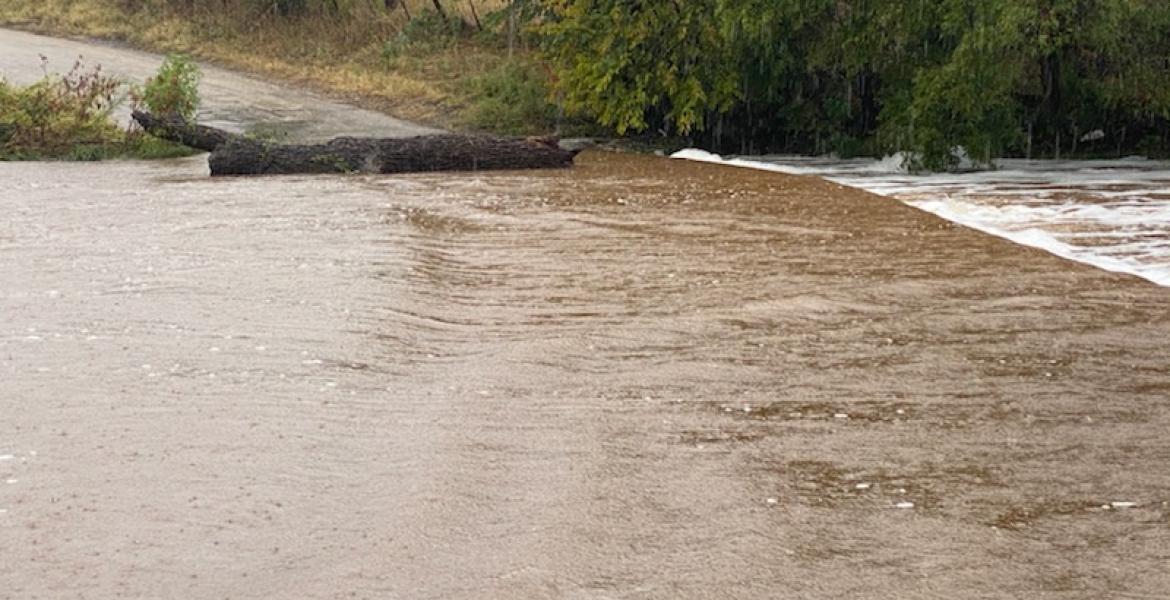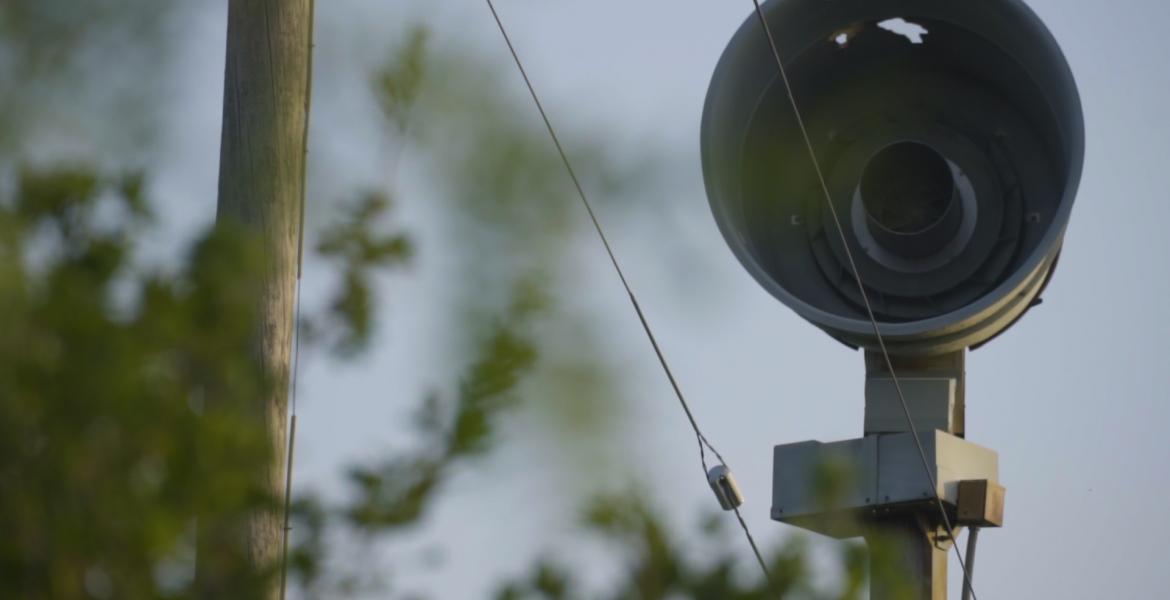They kick down doors and don’t need search warrants, repair park lights and save baby deer: there are a number of misconceptions associated with the job description of a game warden, ideas likely spun out of the nearly universal training they receive that allows them to assist almost any law enforcement agency.
Cynthia Aguilar has been a game warden in Tom Green County for the past nine years. Over the past near-decade, she’s checked fishing and hunting licenses, worked the FLDS scene, assisted the SAPD and Tom Green County Sheriff’s Office with a number of diversified calls, and aided in areas devastated by three major hurricanes.
Her job, she says, is mostly to answer to the public and provide clarity on fish and game related issues, but she does have the training and freedom to do just about anything that falls into the realm of law enforcement.
“I’ve been doing this nine years and there are still things that come up that are somewhat new,” she said. “We’re Texas peace officers, so we can do anything a police officer or a DPS Trooper, what they do, along with enforcing the game and fish laws and water safety laws. Anywhere from checking fishermen, working drownings, boating while intoxicated, traffic violations, we assist other agencies like border patrol, ICE, we do Homeland Security, work border operations, drug smuggling, illegal aliens, etc. We like to dabble in everything, I guess. Or we have the training to do it, so it’s really just whenever they need us.”
Aguilar says that the type of calls a game warden receives to assist depends largely on location and the size of surrounding municipalities, as well as the layout of the land. In Tom Green County, she said, the San Angelo Police Department handles the majority of the calls in the city, and the presence of Pond Nasworthy and the public hunting areas keep the county’s two wardens fairly busy.
In smaller communities, such as Aguilar’s hometown of Colorado City, game wardens function more as police, she said, responding to everything from domestic disturbances to fires to a kid being bitten by a dog.
“Some of the bigger cities, they don’t know what a game warden does. They think we work at the park,” she said. ‘The Sheriff’s Department here, they’re shorthanded and they’re kind of spread out, so if we hear a call go out—let’s say Grape Creek—and we’re around, we’ll assist. Smaller counties, game wardens in the middle of the night, they’re the only officer available, so they’ll have to wait for the Trooper or the SO Unit to get out there and help them.”
Cynthia Aguilar graduated from Angelo State University with degrees in Criminal Justice and Psychology. While in college, she said, she wasn’t entirely sure which path her career would take, and was considering customs before her professor introduced her to a game warden recruiter and she began speaking with several who held the position.
“Here in San Angelo, for whatever reason they breed a lot of game wardens,” she said, noting that her major here in Tom Green County is also an ASU graduate, and listing off others in Del Rio and Lubbock who call ASU their alma mater.
Curiously, ASU does not currently have a program in place for those who wish to enter the field. Short of there being something mixed in the faculty’s water, Dr. Laurence Jones, ASU Department Chair of Criminal Justice, says he doesn’t know why there’s such interest among students in that particular field, but he and Agriculture Department Chair Mike Salisbury have been discussing the possibility of establishing a program, should there be enough interest.
“I have questions from the students…that are coming in and trying to figure out what they want to do at Discover ASU or just a cold phone call, saying ‘Hey, I want to be a game warden, what should I do?’” Salisbury said. “And we always have this, ‘well, you can do this long list of things’ instead of ‘this is what you should do.’ We don’t have a specific track that says ‘You need to focus. Here’s what you do’.”
Salisbury and Jones say they would like to develop a program that would provide a recipe for incoming students wishing to pursue careers as game wardens, sharing resources from the Criminal Justice, Agriculture, Biology and possibly Geology faculties.
In the past two years, Salisbury said, he’s helped two students prepare for application interviews, and the hiring process can be daunting. Cynthia Aguilar recalls having become discouraged at some point in the process due to how narrow the chances of acceptance are, but she decided to push through and was accepted on her first try. She says she knows other wardens who have had to apply as many as seven times before being accepted, but advises students to persevere if they want to be successful.
“I just can’t emphasize how great of a job it is,” she said. “Ten years ago when I applied, they took 40 into the academy and that year there was over 750 applications. This year I think they only took 12 and there were well over [750].”
In order to become a game warden, one is required to have a Bachelor’s degree in any discipline. There is also an extensive background check—Aguilar says hers took one year to complete—where they look at credit, who your friends are, your criminal record including parking tickets, grades, employers and other factors. Seven months of training at the academy in Hamilton and rigorous physical and psychological examinations complete the process, and the newly trained game warden is assigned a duty station depending on what’s open, Aguilar said.
Should Dr. Jones and Dr. Salisbury develop and implement a program for those wishing to enter the field, they intend to work with the county’s Parks and Wildlife office to provide comprehensive and practical education.
Aguilar said she strongly advises anyone who wants become a game warden to talk to local officers and participate in internships and ride-a-longs, in order to get a better grasp of what the job entails, to build relationships and to fill out an eye-catching resume. She said it wasn’t until she began talking to local game wardens that she ultimately decided to become one herself, and says there are many different aspects of the job even successful applicants aren’t immediately aware of.
“I will say the first year was the only year I had doubts, like, ‘Am I doing the right thing,’” she said. “Everything was new. There were so many new things at once and I was overwhelmed, but that’s because I felt I had the obligation to do everything…be out all the time, work so much…I overextended myself. I brought it on myself.
“The fist thing I did coming out, I thought, ‘Ok, I’m a Game Warden. I’m going to go check fishermen and hunting…’ But no, we had a boat accident,” she continued. “I had to go work a fatality my first few months in. A few months after that…we got sent to work the hurricanes—Katrina, Rita and Ike. They [game wardens] had a big part in that. With the relationships we have with other agencies and the equipment we have, we’re called on for a variety of things.”
Nowadays, Aguilar says it’s the excitement of new things that make her love her job, but she says her profession is often misunderstood by both the public and by potential applicants.
Asked whether one has to be a lover of animals and the great outdoors, she responded with a definitive ‘”yes” on the outdoors front “because we spend a lot of our time outdoors. Now animals—people think ‘I want to be a game warden or I want to be a vet because I love animals.’ Well, we don’t go pet animals and feed deer and stuff like that. We shoot them and we allow people to shoot them as long as they do it legally. Yes, we protect them for future generations to be able to hunt them and experience everything we did, but at the same time, we don’t really rehabilitate or have pets, stuff like that,” she said.
The job is also not without its dangers. A game warden’s uniform is brown, and they patrol hunting areas where everyone around them is carrying a gun. There have been those who have been accidentally shot or drowned, she said, so being alert is always of the essence.
“Sometimes you go to deer camps by yourself, one, two, three in the morning, nobody knows where you’re at and you’re dealing with a bunch of drunk men from who knows where,” she explained. “It’s dangerous because everybody you’re dealing with either has a gun—a shotgun, rifle, knife for fishing—so it’s dangerous, but for the most part most people are good people when it comes to knowing what we do and why we’re there. We can go anywhere there’s wildlife known, so private land we’re able to get on, so—I’m not saying we have more authority—but we have, I guess, more laws to enforce.”
Between boats, ATVs, trucks and all sorts of top-notch gear, Aguilar says not only do they have some of the best equipment out there, but the diversity is a lot of fun. She says some days she may be kayaking down the Concho River, while others she’s taking a boat out on Lake Nasworthy. The local Texas Parks and Wildlife office also sends game wardens out to area schools to educate children, and has programs in place to teach them how to hunt and fish.
“A lot of parents don’t have the means to take them (their kids) out,” she said, because the majority of Texas land is in private hands. “We like introducing that stuff. It’s stays with them. They grow up and they keep passing it on so kids don’t stay stuck behind a TV or an Xbox all day. We’re big on promoting the outdoors.
Aguilar said she never really wanted to be a game warden until she actually became one and realized how many different things there were for her to do. “When I became one, I was like ‘I’m ruined for anything else’,” she laughed. “It’s a great job. It has a lot of freedom. They don’t give us a schedule and tell us when we have to work,” she said. She makes her own hours and patrols different areas depending on the season.
For those wanting to pursue careers in her field, she says maintaining good credit and staying out of trouble are paramount. “Just stay on the straight and narrow and keep your grades up. I say that because I’ve started doing these backgrounds and I see what they look for. When you compete against 800 people, it becomes what makes you stand out.”
The local office offers a 20-hour paid internship to college juniors and seniors in which they ride along with a game warden and learn about the job. Dr. Jones and Dr. Salisbury hope to inspire students to take advantage of this internship as well.
The possibility of developing a game warden track is still in its infancy. The professors say their first step will be to conduct a survey in an effort to gauge student interest. They have also requested that LIVE! provide feedback received from this article. We encourage comments and questions concerning the program from all parties.
Frequently Asked Questions
"I hit a deer. Can I keep the meat?" No. Bambi doesn't belong to you after you run him over. The Texas Parks and Wildlife office does donate meat from animals they put down to needy famillies--those stuck in fences or otherise injured--but they don't donate roadkill. You'll need to move him out of the road.
"I found an abandoned baby fawn. What should I do with it?" Leave it alone. Mother deer don't typically abandon their young, but they will leave them to go look for food. Once the fawn has been touched by a human a mother no longer wants it and the animal will likely have to be put down.
"There's a light out at the park. Can you come fix it?" No. Although the office they operate out of is called Texas Parks and Wildlife, game wardens are not park police. You'll need to call the appropriate authority.
Subscribe to the LIVE! Daily
Required






Comments
Listed By: happy happy
- Log in or register to post comments
PermalinkListed By: Jerry Decker
- Log in or register to post comments
PermalinkListed By: Bill Richardson
- Log in or register to post comments
PermalinkPost a comment to this article here: